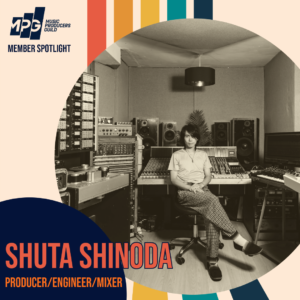 How would you define your main role on most of the projects you work on at the moment?
How would you define your main role on most of the projects you work on at the moment?
My role in most projects is still heavily focused on recording and assisting with production. I also work on developing potential artists and helping them get signed to labels. However, my main focus lately has been on mixing.
I’ve noticed that while there’s a lot of great music out there, there’s often room for sonic improvement, particularly in the low end. Due to budget constraints, a lot of mixing happens in producers’ rooms with limited gear and small to medium-sized monitors. I don’t want to compromise the sound because of these limitations. I want to hear a big, powerful bottom end and bring excitement to every song. That’s why I installed a pair of large monitors (ATC SCM 100A Pro)in my mixing room. It might take a couple of years to see if it was the right choice, but I’m confident it will make a significant difference in the long run.
Please tell us a bit about your musical background. How did you get started in the music industry? What was your pathway to your current role?
I was always a big music listener and spent a lot of time compiling cassette tapes. Like many teenagers, I played guitar, but not at a professional level. The main turning point came when I moved to London in 1999 and lived in Brick Lane. I was inspired by the vibrant chaos of the area and saw new Banksy graffiti every week. It was a rough, artistic environment that I loved. I met many people in the music scene, including one studying audio engineering, which I found fascinating. It felt like the perfect match for my passion for music and gear.
I took the same audio engineering course in London and eventually secured a position in a recording studio in Tokyo. Although I cherished my time in Tokyo, I always wanted to return to London because of the vivid memories I had there. In 2005, I made the move back, but it wasn’t easy; I faced long-standing visa issues that delayed my career for several years. It was a really slow start.
In 2010, I began freelancing at Hackney Road Studios, working with local bands and refining my sound and techniques. I’m still navigating the learning process, embracing both successes and challenges along the way.
What or who inspired you to follow this path?
I am drawn to quirky sounds and unusual production techniques. The innovative approaches of Dave Fridmann and Tchad Blake consistently inspire me, while Bruce Swedien and Steve Albini serve as my recording bible. I strive to capture sounds that are unique and inspiring, and I tend to shy away from conservative production.
Are there any highlights from your work that you are particularly proud of?
I aim to improve my skills with every project I undertake, but one highlight I’m particularly proud of is my work on Ghostpoet’s “I Grow Tired But Dare Not Fall Asleep.” I was involved in every aspect, from the very first day of the recording session to the final day of mixing. Throughout the process, we made strong artistic decisions that shaped the project, and everything worked seamlessly. The result is a dark, atmospheric record that truly reflects the essence of Ghostpoet’s vision.
What’s one tip you can share with other MPG members that could help their workflow?
One tip I’d share with other MPG members is to make a strong commitment during the recording session. Try not to have too many options for mixing later on. If you keep the final vision of the song in mind, you should know exactly what you need in terms of microphone choices, arrangements, and multiple takes. Having too many safe options can slow down your mixing process and may even encourage complacency in your recording skills.
What’s one tip you would like an MPG member to share with you?
What is a good strategy for a foreign producer like me to adapt to the “English environment”? Although London is a vibrant multicultural city where music thrives on passion, I occasionally feel out of place in certain “British” contexts. I’m sure many others feel the same way.
Do you have any words of wisdom for people wanting to get into a similar music production role to yours?
I would advise aspiring music producers to trust and develop their instincts. I often choose to go against current trends. By aiming to be unique, I ensure that there are no substitutes for my sound